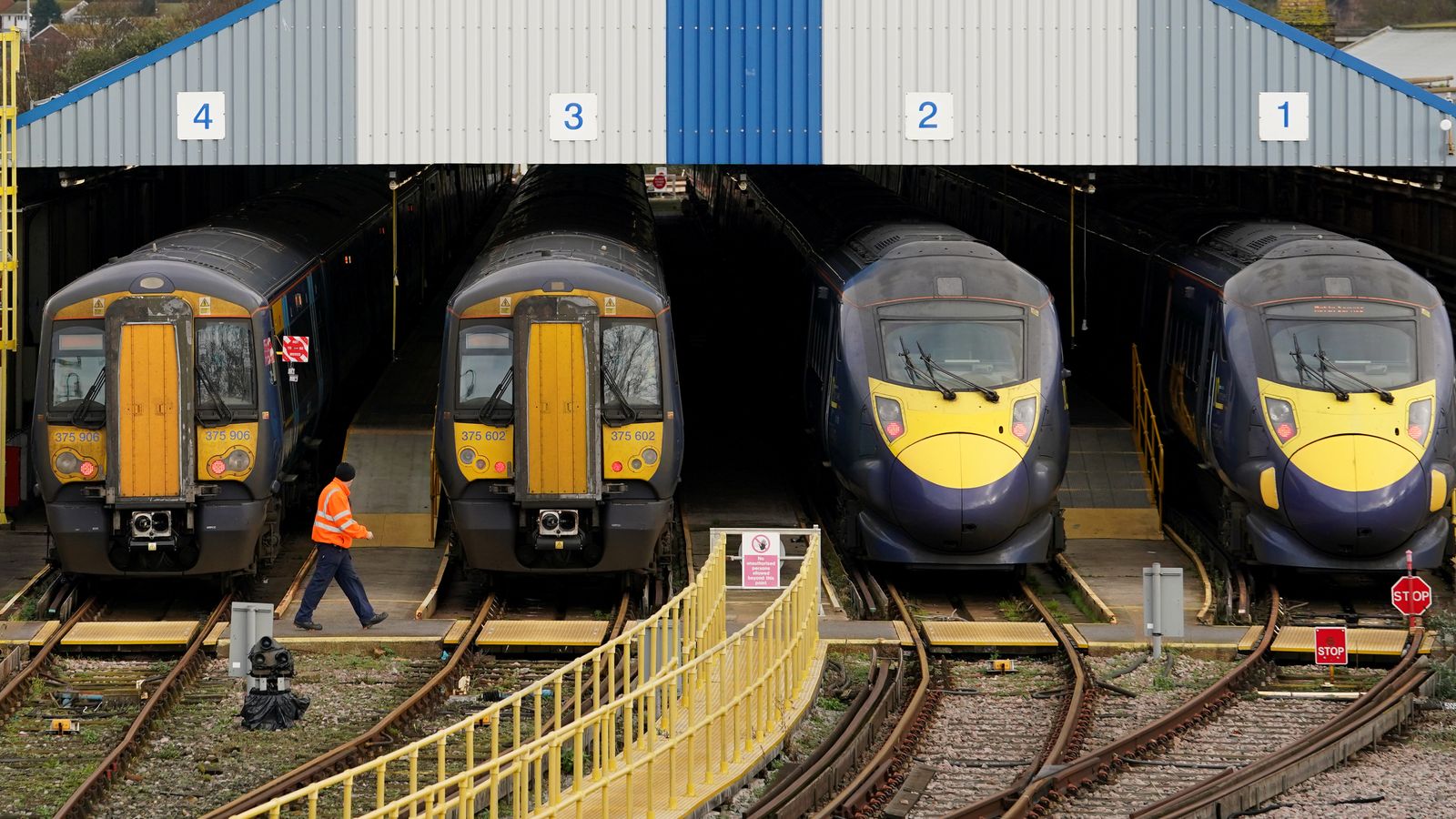Rail passengers are facing a fourth day of travel disruption as thousands of workers continue to strike over jobs, pay and conditions.
Members of the Rail, Maritime and Transport (RMT) union at Network Rail and 14 other train operators will walk out on Friday in action that is set to last 48 hours.
Only around 20% of normal services are due to run, with trains starting later and finishing earlier than usual.
The strike comes after train drivers in the Aslef union stopped working on Thursday, and ends a week of industrial action on the railways that has caused widespread disruption across the country.
Aslef’s general secretary Mick Whelan has warned further strikes are “inevitable” unless the deadlock between rail employers and the government is broken.
He has suggested the industrial action could escalate, saying train drivers want to go “harder and faster” after being refused a pay rise for years.
Talks are expected to be held early next week, but unions have continued to accuse the government of blocking negotiations – a claim ministers have denied.
Sir Keir Starmer pledges to repeal any new anti-strike laws in first big speech of the year – as rail union warns about legislation
More rail strikes today amid fresh driver walkout – and some areas will have no trains at all
Rishi Sunak must ‘step up to the plate’ to break deadlock and stop using pay review bodies as a ‘human shield’, TUC boss says
Anti-strike legislation confirmed by government
On Thursday, the government announced a move to introduce legislation ensuring minimum levels of service during strikes in several industries, including the railways.
The legislation will be put to the Commons “in the coming weeks” and the government will consult on what those service levels should be.
Please use Chrome browser for a more accessible video player
There had been reports that other sectors would also be covered by the new laws, including health, education, nuclear power, other transport services and border security.
But the department said it “expects to continue to reach voluntary agreements” with those unions and “would only look to consult on minimum safety levels should these voluntary positions not be agreed”.
Business Secretary Grant Shapps said: “There has to be a minimum safety level that people can expect even on strike days, particularly in areas like health care. That’s very patchwork at the moment.”
Unions have reacted angrily to the proposal, with officials saying any laws would be unworkable and might lead to even more industrial action as a response to the controversial move.
General secretary of the TUC, Paul Nowak, called the proposals “an attack on working people” and said trade unions “will fight this every step of the way”.






